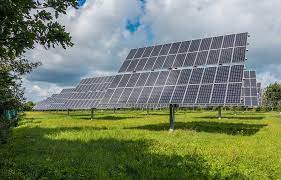The Yellowbud Energy project, a solar farm in Ross County is expected to have construction begin within the course of the year according to representatives of Minnesota-based National Grid Renewables. County commissioners passed a resolution approving Yellowbud for a qualified energy project exemption to construct the solar farm in Ross County meaning they will be exempt from real and personal property taxes and instead will make service payments. The agreement establishes a payment of US$9,000 per megawatt for the solar infrastructure sited in Ross County. This equates to tax generation of approximately US$2.3 million annually to Ross County.
Also Read: FirstEnergy begins construction on EV facility, Ohio
The 274 MW solar photovoltaic electric generating facility proposed to be located in Ross and Pickaway Counties will be span approximately 2,000 acres, connecting to the Biers Run to Circleville 138kv transmission line. It is expected to offset carbon dioxide emissions by an estimated 392,000 metric tons each year, equivalent to taking approximately 85,000 cars off the road. Using the Environmental Protection Agency’s (EPA) Greenhouse Gas Equivalencies Calculator, a solar project this size is estimated to produce the equivalent electrical usage of approximately 52,000 homes.
The solar farm will begin construction in the late summer or early fall, according to William Risse, permitting specialist for the project who also stated; “we have just received approval from the Ohio Power Siting Board, we’re moving through final engineering, bringing in contractors, doing all that work. Something that’s great about the pilot program is that 80% Ohio Domicile labor will need to be brought in for the project, so we’re excited to invest in the community here and the state of Ohio.”
The farm is expected to be fully operational by the end of 2022 and will employ an estimated 350 local electrical workers when it breaks ground later this year, according to the IBEW.
